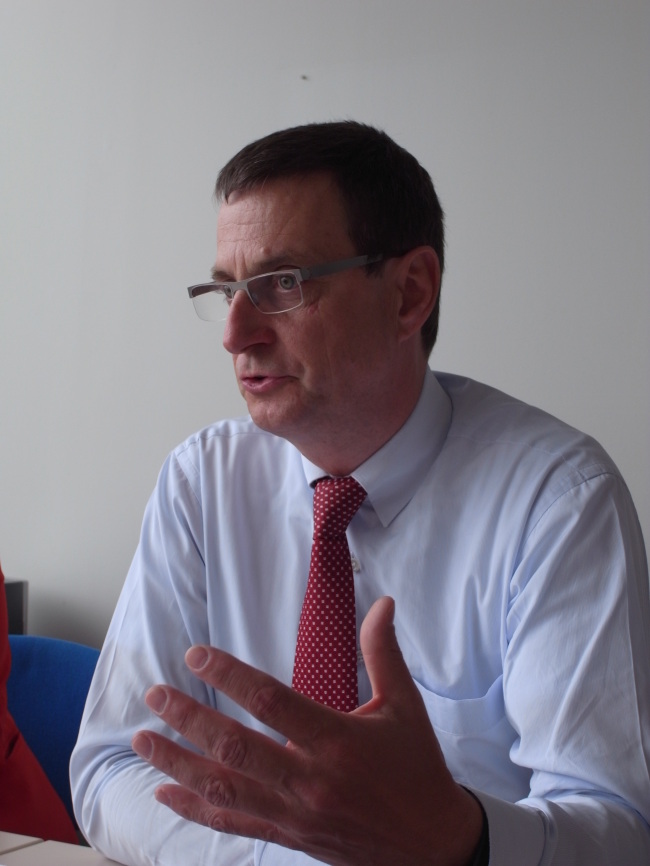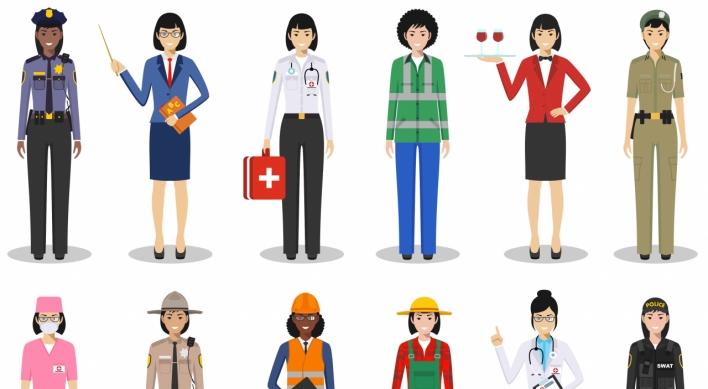Bosch confident of continued success in electric vehicle era
Automotive chief says split from former venture with Samsung SDI based on different strategic goals
By Korea HeraldPublished : June 13, 2013 - 19:58
BOXBERG, Germany ― For Bosch, it was like a divorce.
“Bosch and Samsung SDI had different mid- and long-term strategic objectives. So we decided to divide the joint venture,” said Bernd Bohr, chairman of Bosch’s automotive group. Bosch is the world’s largest auto parts supplier in terms of sales.
“The cell business goes to Samsung, while battery pack and management goes to Bosch. We are still in a kind of cooperation,” he added at a press conference here.
“Bosch and Samsung SDI had different mid- and long-term strategic objectives. So we decided to divide the joint venture,” said Bernd Bohr, chairman of Bosch’s automotive group. Bosch is the world’s largest auto parts supplier in terms of sales.
“The cell business goes to Samsung, while battery pack and management goes to Bosch. We are still in a kind of cooperation,” he added at a press conference here.

Bosch realized Samsung had approached it from the start due to its brand value, Bohr said, but refused to dwell on it, saying Samsung SDI had given it a much-needed leg-up to enter the car battery market.
Last year, Bosch sold its entire stake in a 50-50 joint venture called SB LiMotive, which it established together with Samsung SDI to develop batteries for electric vehicles in 2009.
The German company now pursues its own battery research, while using cells from Samsung in a Bosch battery pack that will be supplied to the Fiat 500e electric car starting next year.
In a way, the two companies are still meshed in a relationship, as they are forced to combine their efforts for sales. The two also continue to share patents.
Amid the shift toward electric cars, which is reshuffling entire value chains in the car sector, the German giant aims to continue to prevail in the new automotive era.
“The cars on the world’s roads are still running on diesel and gasoline, and things will stay that way for the rest of the decade,” Bohr said. “However, slowly but surely, the number of alternatives is growing.”
The company predicts 110 million newly registered vehicles around the world by 2020, with 12 million of them having an electric powertrain.
Bosch currently invests about 400 million euros ($534 million) every year into electromobility, although the segment remains mainly an investment for the future rather than for an immediate mass market.
Asked if he believes Bosch could continue its supremacy in the new era of electric driving, the automotive chief seemed to have no doubts, saying it had always been in fierce competition with two or three strong rivals.
“For the electric vehicle, we need to be aware that very new competitors are coming from outside the automotive industry,” he said.
“It’s a race with those companies learning how to do business in this industry, which is very special and difficult,” he said.
He also said the company’s diesel business, in particular, would maintain its competitive edge, citing the willingness to choose diesel-powered hybrid cars among fuel-conscious customers who also want more power.
Seeking new partnerships is also crucial to continuing growth for Bosch, which pulled out of its joint venture with Samsung SDI last year.
“Batteries are a key element of electric driving. We are considering setting up manufacturing systems with other companies, though, at a pilot level,” he said.
Bosch, an avid advocate of partnerships, is expected to announce new business partnerships in the coming six months on powertrain electrification and related IT technologies. Bohr declined to further elaborate.
With some 300 journalists from 25 countries joining the biannual global press conference this week, Bosch is showcasing its latest innovations in powertrain electrification and automated driving ― the key areas for more efficient and safer driving.
By Lee Ji-yoon, Korea Herald correspondent
(jylee@heraldcorp.com)
-
Articles by Korea Herald



















